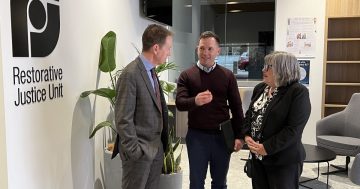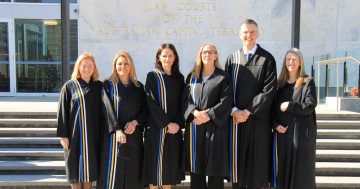
ACT Attorney-General Shane Rattenbury said the expansion of the restorative justice scheme has led to a safer and more peaceful community. Photo: Supplied.
Canberra’s restorative justice scheme, where victims have the option to meet with the offender and discuss how an offence has affected them, has achieved a 98 per cent satisfaction rate since its expansion two years ago.
The scheme received 191 referrals for family violence offences and 15 for sexual offences since it was expanded to include the two offences in November 2018.
Eight offences were classified as serious or indictable.
Attorney-General Shane Rattenbury lauded the high level of satisfaction, saying that the results are evidence of how restorative justice can help reduce the trauma experienced by victims of crime.
“Restorative justice is also a powerful method of building an offender’s understanding of the consequences of their actions to build longer-term safety,” he said.
“[The] satisfaction rate for family violence and sexual offences confirms restorative justice is safe, respectful, fair and meaningful for victims.”
The agreement to proceed to a meeting or conference between the parties is facilitated by informed consent before a formal agreement is made to proceed. It requires the offender to make amends and engage in activities designed to reduce violent behaviour.
There has been an 87 per cent compliance rate for family violence agreements.
“These figures show the valuable role of restorative justice in creating a safer and more peaceful community,” Mr Rattenbury said.
In the two years to November 2020, 22 per cent of victims participated in family violence conferences and 30 per cent of victims participated in sexual offence conferences.
When it comes to family violence offences, 40 per cent of young offenders and 10 per cent of adult offenders participated in conferences and 40 per cent of adult sexual offenders participated in the voluntary process.
Chief Magistrate Lorraine Walker said the process contributed to the wellbeing of the whole community.
“The process provides an avenue for real resolution of the impacts of crime which goes beyond that which can be provided by the judicial system,” she said.
“The Courts have welcomed the expansion of restorative justice options … which empowers victims and offenders to address the harm suffered through criminal offending.”
More information about the program can be found at JACS.





















